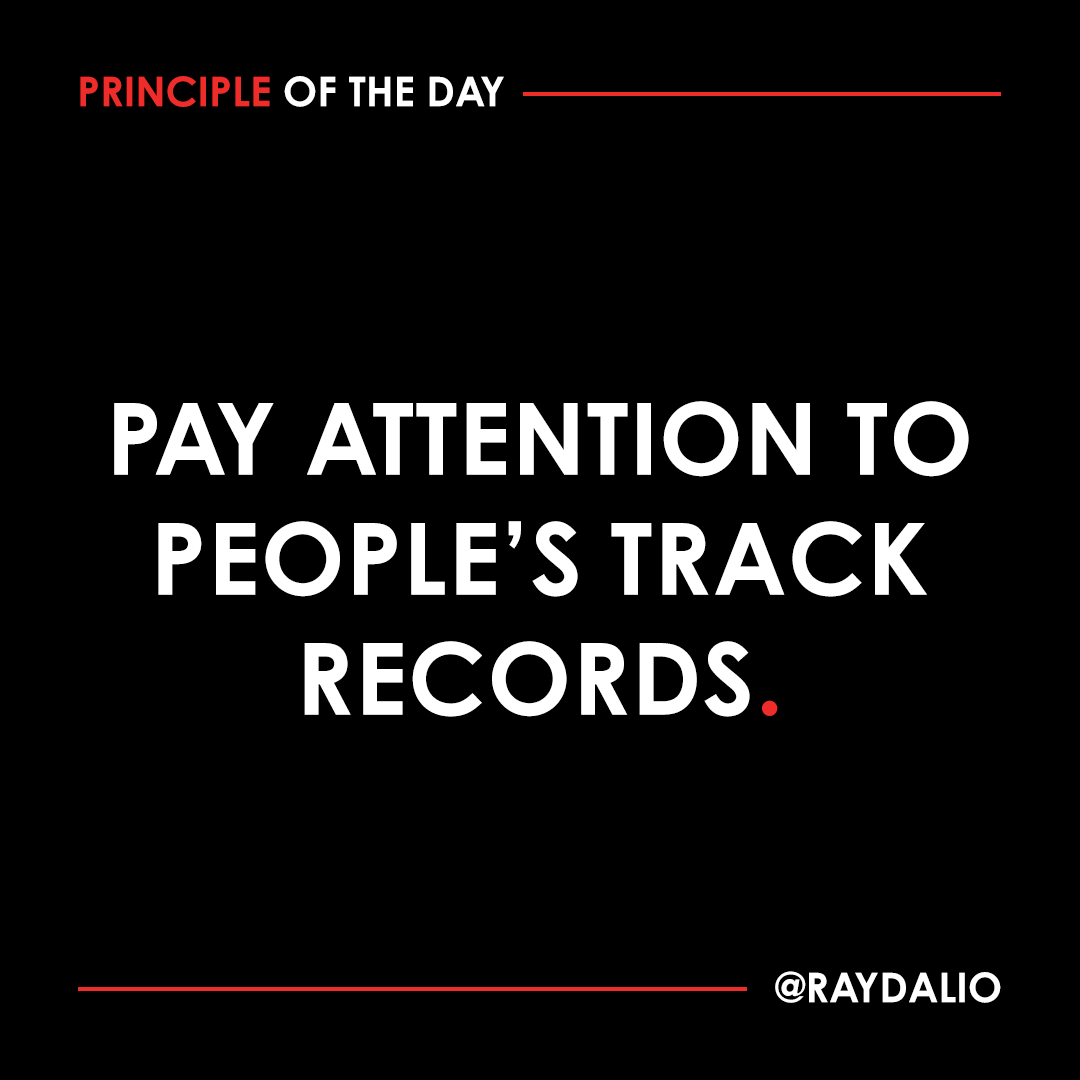
People's personalities are pretty well formed before they come to you, and they've been leaving their fingerprints all over the place since childhood; anyone is fairly knowable if you do your homework. #principleoftheday (1/4) 

You have to get at their values, abilities, and skills: Do they have a track record of excellence in what you're expecting them to do? Have they done the thing you want them to do successfully at least three times? (2/4)
If not, you're making a lower-probability bet, so you want to have really good reasons for doing so. That doesn't mean you should never allow yourself or others to do anything new; of course you should. But do it with appropriate caution and with guardrails. (3/4)
That is, have an experienced person oversee the inexperienced person, yourself included (if you fit that description). (4/4)
• • •
Missing some Tweet in this thread? You can try to
force a refresh








